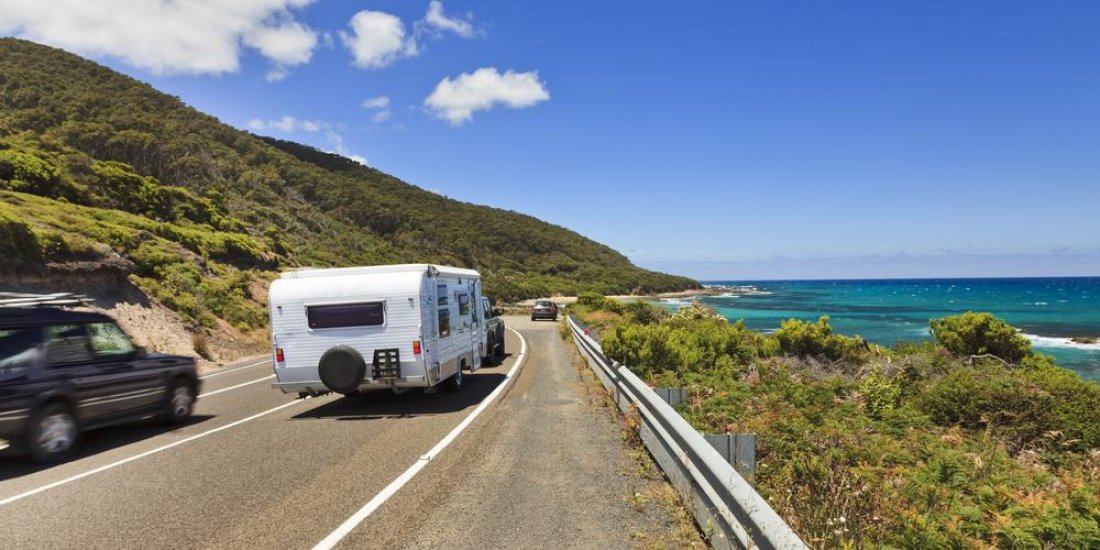How To Prepare For A Solo Road Trip In Victoria

It can be all too easy to stay in and around the Melbourne CBD when travelling to Victoria, but a trip to Australia's 'garden state' truly wouldn't be complete without exploring its rich, regional areas. From Mildura to Mallacoota, and the Great Ocean Road to the Great Alpine Road, the state of Victoria is filled to the brim with exciting attractions like beautiful beaches, breathtaking wineries, and scenic rural highways. And with so many regional cities and town centres dotting Victorian highways, embarking on a road trip either with a group of friends or even just on your own, will be sure to provide plenty of enrichment.
But solo road tripping can come with its fair amount of challenges, even in Victoria. So what should you do to prepare for your time out on the roads leading away from Melbourne? We'll be answering that question today by sharing some top tips to keep in mind when gearing up for a solo road trip in Victoria.
Get your car ready for the long drive
First and foremost, you'll want to make sure that your car is ready for the drive ahead. This means renewing your third party car insurance if need be, as well as booking an appointment with your mechanic to service your vehicle. You'll also need to check that your headlights aren't dead, check the air pressure in your tyres, and that you have good oil and transmission fluid levels, amongst other vehicle and driver safety measures.
Another often overlooked element of getting your car ready for a long trip is simply taking it to your local car wash for a good clean before you hit the road. Although Victoria boasts a more temperate climate than other regions across Australia, the sun can still get pretty harsh outside of wooded areas. If you have streaks or stains on your windows and windshield, you may impede your visibility, which can be quite dangerous when you're travelling 110km/hr down a rural highway. So add a trip to the car wash to your list of pre-road trip tasks!
Prepare a basic road trip itinerary
Even if your trip is going to be a little loose and open-ended, it's still a good rule of thumb to have a basic understanding of where you'd like to travel, when you'd like to get there, and how much time you'd like to spend in each location. That way, you can be sure to make the absolute most of your time away.
Preparing a basic road trip itinerary can also help you grab some good deals on accommodation, as you can make your bookings in advance. If you are planning to book accommodation at all your major waypoints, however, then be sure to leave ample time for travel between waypoints. The last thing you want is to be rushing from one bed to the next and not actually being able to savour your time on the road as a result.
Preparing your road trip itinerary ahead of time is also a matter of safety, as you can share this trip itinerary with your friends and loved ones. In the event that you're involved in an accident or even just experience telecommunications issues, your family will know roughly where you may be and how best they can reach you with a copy of your trip itinerary on hand.
Map out a driving schedule to fight fatigue
Similarly, a road trip itinerary can also help you develop a firm understanding of how much driving you can expect yourself to do on any given day. Keep in mind that Australia is deceptively large - even in Victoria, one of its smallest states. You can expect the journey from one major rural township to another to typically take an hour at minimum. And if you're planning to drive through a few rural city centres every day, then you could find yourself at the wheel for 6+ hours at a time.
Thankfully, if you know how long you'll roughly be driving every day, you can plan accordingly. And by that, we mean map out pit stops or rest areas where you can take a nap during extra long drives. This is paramount as it will help you stave away driver fatigue. And if you're driving with an alert mind, you're naturally going to be a lot safer on rural roadways.
Invest in an emergency first aid kit
One of the scariest 'what ifs' that you'll be likely to encounter when preparing for a solo road trip is simply the question of 'what if I get hurt?'. It can be a little daunting having to be responsible for yourself in the event of an accident or injury, but that is the one of the more prominent drawbacks of embarking on a solo adventure.
Thankfully, with a little planning and consideration, you should find it easy enough to stay safe during your time away. This means taking all the measures we've outlined above as well as packing along some safety and healthcare essentials too.
Ideally, all drivers should have a first aid kit in their vehicle, as an accident or injury can occur at any time.
Your kit should include:
- Bandages and gauze
- Scissors and safety pins
- Antibacterial wipes and solutions
- Hand sanitiser
- Painkillers
- Tissues
- Sunscreen
- A flashlight and/or headlight
- Tweezers and nail clippers
- Electrolyte powders or drinks
- Non-perishable food items
Your first aid kit should also include a first aid manual, a document that details the best way to bandage injuries and other first aid procedures (i.e. CPR).
Pack food and water in your vehicle
Finally, even if you do have some snacks and rehydrating products in your first aid kit, you should also ensure that your car is packed with some other food and refreshments prior to heading out on Victoria's rural highways. This preparatory step is especially important during seasonal weather conditions (i.e. extreme heat in summer or torrential rainstorms in winter).
Because Victorian regional areas are so isolated, it can be surprisingly easy to find yourself stranded during extreme weather conditions. And if you do happen to stall on the side of the road in direct sunlight or along a mountain slope during a hailstorm, you will want to make sure that you can stay in your vehicle until the weather subsides and the last thing you need is to be hungry during this waiting game, if you ever do happen to find yourself in this situation.
So be sure to pack an esky or cooler bag filled with nourishing food and water. These rations will also likely come in very handy during any rest stops you take!
With all these considerations made, you should find your solo Victorian road trip to be a highly enriching and liberating travel experience. Just remember to share your journey with friends and loved ones via social media or by simply checking in here and there, and to provide a copy of your trip itinerary to those you love back home.

Editorial Team

